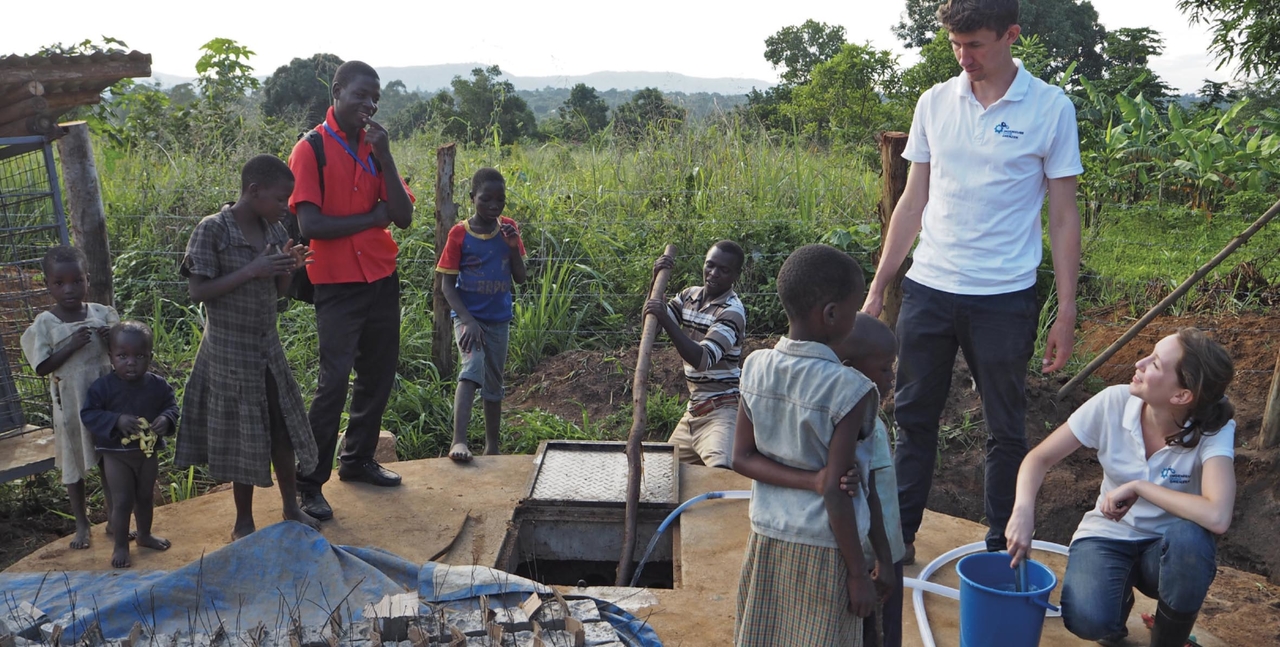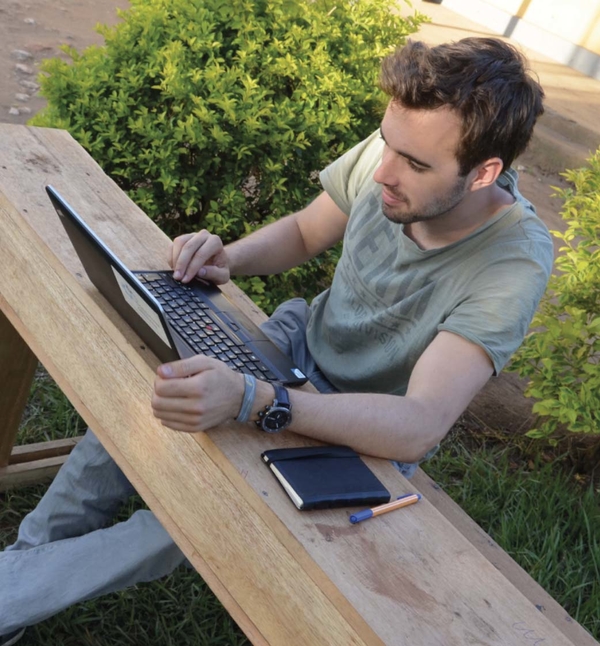 Matthias Exner, an engineer at Lufthansa Technik, is familiar with the situation in the town of Kyotera. In 2017, he spent a number of weeks living there. His task: as an active member of the NGO Engineers without Borders, he came to help to build cisterns and a canteen at another school in the town. The project was successful. “Ultimately, we were able to provide an impulse and give them structural help with a relatively modest level of funding,” says Matthias Exner. “The fact that things worked out well there and that the school is now in a much better financial position is mostly down to the efforts of the local people.”
Matthias Exner, an engineer at Lufthansa Technik, is familiar with the situation in the town of Kyotera. In 2017, he spent a number of weeks living there. His task: as an active member of the NGO Engineers without Borders, he came to help to build cisterns and a canteen at another school in the town. The project was successful. “Ultimately, we were able to provide an impulse and give them structural help with a relatively modest level of funding,” says Matthias Exner. “The fact that things worked out well there and that the school is now in a much better financial position is mostly down to the efforts of the local people.”
Sustainable in all respects
On the basis of this experience, Engineers without Borders – with co-financing from the help alliance – are now giving their support to the Divine Mercy High School. New toilets and washrooms, a better connection up to the water supply and a water filter to provide drinking water are planned. Not only the students will benefit: The sanitary equipment, pumps and water tanks will be purchased exclusively from Ugandan manufacturers. As the facilities are to be built by local craftsmen, this will help them to build up knowledge and experience and to generate income in another area apart from agriculture. And the tiles which will be required will not be baked according to the usual process but will instead be mechanically pressed. The resulting material is better, cheaper and significantly more environmentally-friendly – for 10,000 to 20,000 tiles, the traditional baking process requires around 10 tonnes of firewood with the corresponding CO2 emissions. An enquiry has already been received from a member of the clergy who has asked whether these tiles could be used in the building of his new church.
An infectious zest for life
“It is incredible to witness the zest for life and the optimism which the children in Kyotera bring with them to school and to see how keen they are to learn”, says Matthias Exner. “It really motivates us to try and take away some of their burdens and to give them support in their everyday lives.”


 Matthias Exner, an engineer at Lufthansa Technik, is familiar with the situation in the town of Kyotera. In 2017, he spent a number of weeks living there. His task: as an active member of the NGO Engineers without Borders, he came to help to build cisterns and a canteen at another school in the town. The project was successful. “Ultimately, we were able to provide an impulse and give them structural help with a relatively modest level of funding,” says Matthias Exner. “The fact that things worked out well there and that the school is now in a much better financial position is mostly down to the efforts of the local people.”
Matthias Exner, an engineer at Lufthansa Technik, is familiar with the situation in the town of Kyotera. In 2017, he spent a number of weeks living there. His task: as an active member of the NGO Engineers without Borders, he came to help to build cisterns and a canteen at another school in the town. The project was successful. “Ultimately, we were able to provide an impulse and give them structural help with a relatively modest level of funding,” says Matthias Exner. “The fact that things worked out well there and that the school is now in a much better financial position is mostly down to the efforts of the local people.”